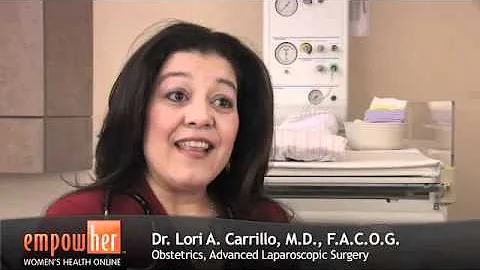
Many women have difficulty conceiving a baby, but they always suffer from spontaneous miscarriage. In addition to enduring both physical and mental pain, these expectant mothers often also have a lot of confusion and fear when preparing for their next pregnancy. Why do I have recurring miscarriages? What should I do if I have recurring miscarriages?
Today, let’s talk about this nightmare on the road to pregnancy.
Spontaneous Abortion (SA) usually refers to the failure of the pregnancy process before a certain gestational age, mainly including biochemical pregnancy , empty gestational sac, embryonic cessation of development, embryo or fetal death, and expulsion of the embryo and its appendages. . In my country, spontaneous abortion is defined as pregnancy termination at less than 28 weeks of gestation, fetal weight less than 1000g. About 15%-25% of women will have spontaneous abortion, and 5% of them will have two consecutive spontaneous abortions, and more than 80% occur before 12 weeks of pregnancy. Chinese experts recommend that two or more consecutive spontaneous abortions be defined as Recurrent Spontaneous Abortion, RSA, including consecutive biochemical pregnancies.
The previous treatment concept believed that spontaneous abortion is a natural process of survival of the fittest, and intervention should be avoided or reduced. However, the risk of recurrence of recurrent miscarriage increases with the number of miscarriages. If timely intervention is not performed, it will have a great impact on the physical and mental health of patients and their families. Therefore, we recommend that women with 2 or more miscarriages should be Perform etiological investigations.

The causes of miscarriage are diverse, and about 40%-50% of miscarriages cannot identify the cause. The identified risk factors for recurrent miscarriage include chromosomal aberrations, anatomical abnormalities, endocrine disorders, coagulation changes, immune factors, etc.
01 / Chromosomal aberrations
Chromosomal abnormalities in embryos are a common cause of spontaneous abortion, accounting for about 50%. The earlier the miscarriage occurs, the higher the incidence of chromosomal abnormalities in the embryo. Embryonic chromosomal abnormalities are related to increasing maternal age. The detection rate of embryonic chromosomal abnormalities in women aged >35 years is as high as 78%. Therefore, we encourage women of childbearing age to give birth at an appropriate age to reduce the risk of miscarriage and fetal malformations.

The chance of miscarriage due to chromosomal abnormalities in both couples is about 3% to 8%, so it is recommended to conduct chromosomal testing for RSA couples.
02 / Anatomical anomalies
include congenital anatomical anomalies and acquired anatomical anomalies. Congenital anatomical anomalies include septate uterus, arcuate uterus, unicornuate uterus, etc. It is generally believed that the rate of late miscarriage in women with untreated uterine malformations during subsequent pregnancies is Or the rate of premature birth will increase significantly, but whether it is related to early abortion is still controversial. Acquired anatomic abnormalities of the reproductive tract mainly include intrauterine adhesions and cervical insufficiency.

Picture: Illustration of a septated uterus
It is recommended to perform three-dimensional ultrasound, MRI and other imaging examinations to evaluate the anatomy of the uterus. Those with suspected abnormalities need to undergo hysteroscopy and laparoscopy to further confirm the diagnosis. Cervical morphology monitoring should be strengthened during pregnancy to detect cervical insufficiency in a timely manner.
03 / Endocrine disorders
Endocrine diseases are closely related to the occurrence of SA. Mainly include polycystic ovary syndrome, luteal insufficiency, hyperprolactinemia , thyroid dysfunction , abnormal glucose metabolism, etc.

It is recommended that RSA patients undergo routine reproductive hormone testing, thyroid function, and fasting blood glucose screening, and if necessary, glucose tolerance test (OGTT) and insulin release test .
04 / Coagulation changes
Thrombophilia refers to a pathological condition that is prone to thrombosis and thromboembolism due to various hereditary or acquired factors. Hereditary PTS refers to a type of genetic disease that is prone to thrombosis due to defects in various anticoagulant factors or fibrinolytic activity genes.Including anticoagulant protein (protein C, protein S, anti-AT) deficiency, coagulation factor V mutation, hereditary hyperhomocysteinemia (Hhcy), etc. Acquired PTS mainly includes APS, acquired Hhcy, and various connective tissue diseases that are prone to thrombosis, such as SLE, hypertension, diabetes, chronic kidney disease, etc. that have a long course and poorly controlled disease.

Current expert guidelines and consensus recommend PTS screening for RSA patients: common indicators include coagulation 4 items, D-dimer , platelet aggregation rate, serum hcy, aPLs, etc. If necessary, perform functional testing of protein C, protein S, antithrombin (AT), coagulation factor V and other factors and genetic screening for hereditary PTS.
05 / Immune factors
include autoimmune and alloimmune factors. Common autoimmune diseases related to adverse pregnancies such as SA mainly include antiphospholipid syndrome (APS), systemic lupus erythematosus (SLE), undifferentiated connective tissue disease (UCTD), Sjogren's syndrome (SS), etc. . For RSA patients, it is recommended to screen for relevant immune indicators to rule out whether RSA is related to autoimmune factors. Commonly used immune indicators include: ANA profile, ENA, anti-double-stranded DNA antibody , standard aPLs, rheumatoid factor (RF), etc.

Considering the experimental error, it is recommended to screen three times, with an interval of 4 to 6 weeks between each time. The onset of unexplained RSA is related to the imbalance of maternal-fetal immune tolerance, so it is also called alloimmune RSA. The exact pathogenesis of maternal-fetal immune tolerance imbalance is not fully understood. At present, there are no recognized specific diagnostic criteria, and the elimination method is still used, that is, a comprehensive and systematic etiological screening method is adopted to exclude all known causes and the diagnosis can still be made.
06 / Others
Bad living habits and bad environmental exposure are also influencing factors of RSA. Long-term mental stress, irregular life schedule, obesity, smoking, alcoholism, exposure to industrial poisons, high temperature environment, noise pollution, etc. can also cause female miscarriage. possible reasons. It is recommended that before preparing for pregnancy, both husband and wife should correct their bad living habits, stay away from places that may be harmful to health, and appropriately supplement nutrients such as , folic acid, , etc. to maintain a happy and relaxed mentality.
Generally speaking, due to the complex and diverse causes of recurrent miscarriage, many reasons are still unclear. The examination items in various hospitals may also be different, and not everyone can find a clear cause. However, Jiahui Reproductive Medicine Center will do its best to help you get rid of the nightmare of recurrent miscarriage as soon as possible and realize your dream of a happy family.
References: "Chinese Expert Consensus on Diagnosis and Treatment of Spontaneous Abortion" Chinese Journal of Practical Gynecology and Obstetrics 2020, 36 (11): 1082-1090
-
Contributor and reviewer: Jiahui Medical Reproductive Medicine Center
Editor in charge: Wanjie
picture source: Pexels, web





















